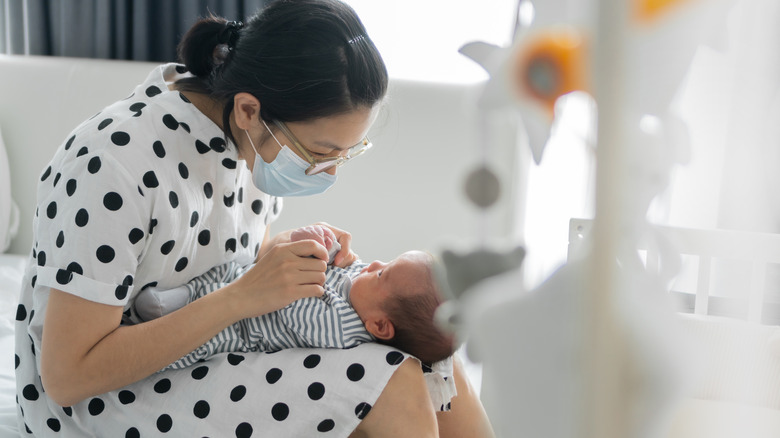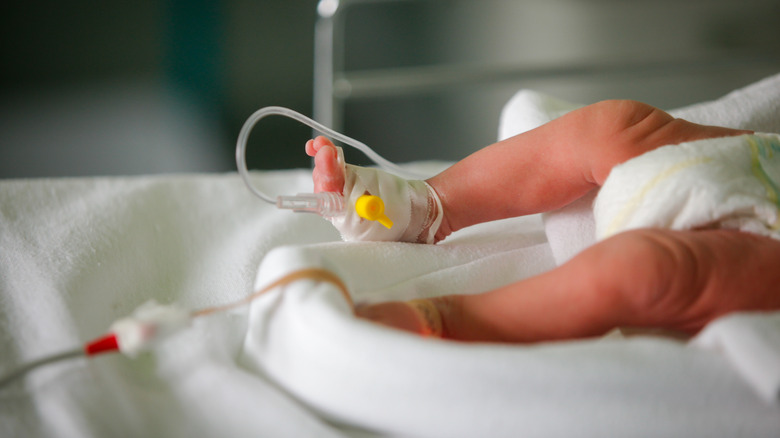How COVID-19 Brought The US An Unexpected 'Baby Bump'
When the COVID-19 pandemic hit, experts expected to see a decline in the U.S. birth rate, which would follow the trend we've been seeing since the country experienced the Great Recession in 2008 (via CNN). Since then, registered births have been falling by 1% or 2% each year, and in 2020 that rate rose to 4%. But according to a new report from the Centers for Disease Control and Prevention (CDC), 2021 was the first year that this number trended in the other direction by 1%, as 50,645 more births were recorded than in 2020.
There were 3,664,292 births recorded in 2021, according to the CDC report. However, this upward trend didn't exist across racial and ethnic lines. Births increased by 2% for White and Hispanic women, but declined by 2% for Black and Asian women and by 3% for American Indian or Alaska Native women. Experts say this disparity is due mainly in part to the pandemic.
"People who lost jobs, people who had to keep working even though they didn't want to, people in high-risk professions may have experienced that as a very stressful and unstable time," Sarah Hayford, director of The Ohio State University's Institute for Population Research explained to CNN. "For people who were able to work from home and experience the pandemic as a time of more financial stability, that might have been a good time to have children without sort of the challenges of commuting or being in the office."
The birth rate rose but preterm births increased
However, while the overall birth rate rose in 2021, the preterm birth rate and low birth weight rate also rose, according to the CDC report. The number of preterm births, or babies born before 37 weeks gestation, rose to 10.49%, up 4% from 2020 and the highest rate since 2007. The number of babies born with low birth weight, or below 5 pounds 8 ounces, also rose 3% to 8.52%.
This data reflects the risks of COVID-19 to pregnant women. According to a 2023 review published in the BMJ Global Health, pregnant women who develop COVID-19 are at higher risk for preterm births and low birth weights. The studies, which included 13,136 pregnant women across 12 countries, found that babies born to women who contracted COVID-19 at any point during their pregnancy were more likely to be born preterm and have low birth weight. These women were also four times more likely to need intensive care, 15 times more likely to be ventilated, and seven times more likely to die from complications.
Currently, the U.S. birth rate is 1.7 births per female (via the University of Pennsylvania). In order to maintain the number of people in the country, the rate would need to rise to 2.1. Women are also typically delaying motherhood until ages 30 to 34, up from an average age of 25 to 29 in 2006.


